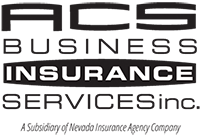Pros and Cons of a Health Savings Account
Investopedia – By Jean Folger November 17, 2017
A Health Savings Account (HSA) is like a personal savings account, but the money is used only for qualified health care expenses. The account can be set up with you as the sole beneficiary, or for you plus your spouse and/or dependents. Established in 2003 as part of the Medicare Prescription Drug, Improvement and Modernization Act, HSAs allow people with High-Deductible Health Plans to pay for current healthcare expenses and save for future expenses on a tax-favored basis. Here, we look at the eligibility requirements, pros and cons and other important details about Health Savings Plans.
Eligibility
To be eligible for an HSA, you must be enrolled in a special health insurance plan called a High-Deductible Health Plan, or HDHP. While these plans have high deductibles, monthly premiums are typically much less than for plans with lower deductibles, which makes them appealing to people trying to minimize up-front costs associated with healthcare. HDHPs are intended to cover serious illness or injury, and with the exception of preventive care (such as annual physicals, child and adult immunizations, and screening services), your annual deductible must be met before any plan benefits are paid.
Advantages
Health Savings Accounts offer a way to save for – and pay for – healthcare expenses. There are many advantages to having a Health Savings Account:
- Others can contribute to your HSA. Contributions can come from various sources, including you, your employer, a relative and anyone else who wants to add to your HSA.
- Pre-tax contributions. Contributions made through payroll deposits (through your employer) are typically made with pre-tax dollars, which means they are not subject to federal income taxes. In most states, contributions are not subject to state income taxes either. Your employer can also make contributions on your behalf, and the contribution is not included in your gross income.
- Tax-deductible contributions. Contributions made with after-tax dollars can be deducted from your gross income on your tax return, which means you may owe less tax at the end of the year.
- Tax-free withdrawals. Withdrawals from your HSA are not subject to federal (or in most cases, state) income taxes if they are used for qualified medical expenses.
- Earnings are tax-fee. Any interest or other earnings on the assets in the account are tax free.
- Funds roll over. If you have money left in your HSA at the end of the year, it rolls over to the next year.
- Portable. The money in your HSA remains available for future qualified medical expenses even if you change health insurance plans, change employers or retire. Funds left in your account continue to grow tax fee.
- Convenient. Most HSAs issue a debit card, so you can pay for your prescription medication and other expenses right away. If you wait for a bill to come in the mail, you can call the billing center and make a payment over the phone using your debit card. And, you can use the card at an ATM to access cash.


